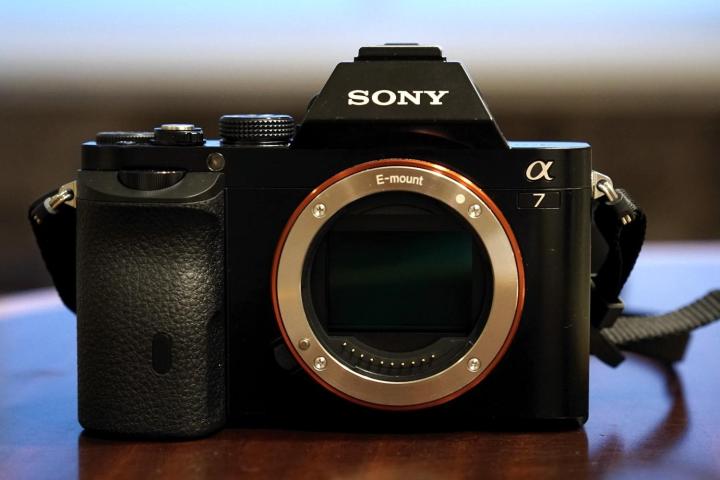
Check out our reviews of the Sony Alpha A7 and A7R digital cameras.
Last week, we headed down to Tennessee to spend some quality time with Sony’s newest cameras (we were guests of Sony, but the opinions are our own). Two of the cameras we used the most were the new game-changing Alpha A7 and A7R full-frame mirrorless cameras.
To say they’re amazing cameras is a bit of an understatement, but we’re going to refrain from lavishing them with full praise until we spend more time with a review unit. Full-frame cameras are typically large and bulky, but Sony has managed to fit a ton of high-resolution imaging goodness into a compact body. Both cameras feature a lot of new tech, like the Bionz X image processor and fast autofocusing (click here to read more about the specs in them). We will bring you more about our overall first-impressions in the next few days – performance, ease of use, etc. – but in the meantime, we want to share with you some of the images we shot. Great-looking images is why you go full-frame, and the A7 and A7R don’t disappoint.
Sony supplied us with the 28-70mm f/3.5-5.6 (SEL2870) full-frame lens (the kit lens that’s available as a bundle with the A7) and the Carl Zeiss Sonnar T 55mm f/1.8 full-frame prime lens. Being that they’re E-mount cameras, we also could use non-full-frame E-mount lenses or, via an adapter, A-mount DSLR lenses, but we stuck with the supplied lenses most of the time, out of convenience.
The images aren’t completely flawless, but considering how we shot with the cameras – we were usually playing around with the various settings and shooting handheld – we’re really happy with how the majority of our photos looked. Our lead camera reviewer David Elrich shot some amazingly sharp images, using a variety of lenses and in different modes and settings. The great colors and details captured by these cameras are making us reconsider how we feel about full-frame photography from a consumer standpoint. We will have a final verdict down the road, but until then, check out some of the images.
The image above was shot with the A7 and the 28-70mm lens. The image to the right is a close-up crop. Despite being a kit lens, we found it to be capable in situations like this.
The image above was shot with the A7 and the 55mm lens. The A7 uses the same sensor as Sony’s Alpha A99 DSLR, and while the A7R might have the better sensor, the A7 is no chump.
Here’s the same model, but photographed with the A7R and 28-70mm lens. Unless you’re a pro, most of us probably can’t tell the difference.
The image above was shot with the A7R and the 55mm lens. The image to the right is a close-up crop of the fire that’s burning.
We didn’t really want to get too close to the swarm of ladybugs in this area of Southern Tennessee, but you can see the details when you zoom in on the image. We used a A7R and 28-70mm lens.
Another sample image from the A7R and 55mm lens. In case you were wondering, that’s a statue of Jack Daniels of Tennessee whiskey fame.
Here, we have country music star Leah Turner doing an impromptu performance inside a recording studio. The lighting and position of where we stood wasn’t great, and Turner moved around a lot. Still, the A7 and 55mm lens did their best.
The A7 and A7R are made of magnesium alloy and weather-sealed, so we took them out to a muddy field during a wet day to photograph some off-road Jeeps drive by. With the A7R and 28-70mm lens, we were quite a distance away from the vehicle, and we didn’t get quite the sharpest image as we fiddled with the manual mode settings. Still, for most people, this image isn’t bad and you can still make out the words on the vehicle clearly when cropped in.

Finally, we have an image of musician Ben Folds performing at the Ryman Auditorium in Nashville. This was shot with the A7R and 28-70mm lens in mostly low light. The image, while fine at small sizes, does exhibit noise when you zoom in. But the noise is fairly even and it’s a useable image even if you enlarge it.


















